- Home
- Alex Scarrow
The Candle Man Page 2
The Candle Man Read online
Page 2
The clocks had chimed midnight nearly an hour ago and the public houses were all but emptied now. Dock workers and market traders had stumbled back home to their anxious wives, Dutch and Norwegian sailors back to their moored ships. The only potential customers she was likely to find left were connoisseurs; men who knew exactly what they wanted from a tart and were sober enough to make sure they got their money’s worth. The type of customer she detested.
She watched the dark shape, gently rocking to and fro, moaning softly, and whimpering almost like a child. She decided he was drunk. She stepped into Argyll Street towards him. She had to walk past him anyway, but a closer look couldn’t hurt. Her shoes clacked lightly on the greasy cobbles as she approached him.
Closer now, she could see he was no dock worker or market trader. He wore smart boots that glinted with polish, a dark, well-cut suit, a waistcoat and a cape draped over his shoulders. The dim light picked out the white rim of his shirt cuffs, dotted with dark, almost black, spots.
Mary had seen blood by gas light before. It was as black as ink.
She stopped opposite him. ‘You all right?’
The rocking stopped.
‘Sir? You all right there?’
Slowly his head came up from his hands and she couldn’t help but gasp as she saw the drying blood on his hands, down the right side of his face and matting his hair in a thick, gelatinous tangle.
His eyes seemed to focus on her for a moment, then to roll with a will of their own. ‘I don’t . . . I . . .’ The rest of his words became a confused mumble.
Mary took a step across the narrow street towards him, confident that he looked to be in too bad a way to pose a threat.
‘What happened?’ she uttered softly. ‘Were you jumped?’
She hunkered down in front of him, like a schoolmistress consoling a lost child. ‘You been robbed? That it?’
The man’s eyes swivelled back onto her. Not really focusing. Judging him from the side of his face that wasn’t caked in drying blood, she guessed he was a man in his late thirties. Fashionably cut sideburns and a well-trimmed and cared-for moustache. A gentleman.
His eyelids flickered, his eyes rolled upwards until she could see only the whites and slowly, like a mature oak being felled, he slumped over onto his left side.
‘Hoy . . . hoy, mister?’ she prodded him. ‘Mister?’
She leant over his head and could hear his breathing bubbling through mucous. Still breathing. Still alive. He’d passed out was all. She leant closer and in the flickering gas twilight thought she could see a deep gash in his matted hair.
A cosh, or a club, even a dull-edged hatchet, could have done that. She suspected she was right: some young hoodlums must have cornered and mugged him. Without realising it, she found her hands were thinking for themselves. Already probing his pockets. She hated herself for doing that. Hated that this was now her first instinct: to see what the muggers might have left behind that could be lifted off this unfortunate bugger, what could be taken and pawned.
‘I’m sorry, sir,’ she whispered as she probed the folds of his cape and jacket. ‘See, I need the money. I need it.’
The man’s voice groaned a thick syrup of lost words.
Her hand found dampness on the side of his torso. She pulled it out and saw it was sticky with dark, cloying blood.
He’s been stabbed too.
She fancied the poor gentleman was going to bleed out on Argyll Street before the morning came and some early trader on his way to work found him. She resumed her hasty search of his clothing and, just as she was about to give up, her fingers chanced upon the edge of a leather strap. She followed it down to his hip where the strap met the soft worn leather of a satchel flap.
Her hand probed cautiously inside and immediately felt a variety of things: the cool metal of keys on a ring and the smooth leather of what felt like a bulbous, well-fed wallet.
‘Bleedin’ Jesus!’ she muttered.
Mary was about to probe deeper, to pull out her find one item at a time and examine them, when she heard the distant clacking of hooves on stone. She decided she’d chanced her luck enough for one night and eased the leather strap off the man’s shoulder and quickly tugged it over his head.
She got to her feet and, with one last glance back at his slumped form, she hurried on down Argyll Street, the small satchel already over her own shoulder as if that’s how she always wore this masculine-looking bag of hers.
Her quick steps took her onto Great Marlborough Street, far better lit and overlooked on both sides by tall townhouses with lace-curtained windows that still, here and there, glowed the soft amber of midnight oil.
Several carriages clattered past, taking gentlemen home from their drinking clubs. A hundred yards up the street, where wispy skeins of early morning mist covered the stone cobbles and small islands of horse manure, a dozen noisy young lads ambled drunkenly in the middle of the carriageway, hurling abuse at each other and laughing like chattering monkeys.
Mary hesitated. A pang of guilt stopping her where she stood. Once more she glanced back down Argyll Street at the faint hump of the man’s body and knew leaving him like that, she was surely leaving him to die.
‘Oh bugger,’ she whispered.
CHAPTER 2
12th September 1888, London
He was awake for quite a while before he realised it. Looking up at a high plaster ceiling, discoloured a faint vanilla and riddled with the porcelain-fine cracks of drying and peeling paintwork.
Turning his head slightly on a pillow that rustled noisily beneath him, he could see a row of tall windows draped with net curtains that shifted in a gentle breeze and glowed the soft grey light of approaching dawn. His head throbbed at the movement and he lifted a hand to soothe the pain, finding a thick swathe of bandaging around his forehead.
His eyes flitted around the other things he could see without shifting his head again: he saw a row of beds opposite him, most of them occupied, he presumed, from the chorus of wheezing and snoring that echoed off the high ceiling.
A hospital ward.
That’s what this was. That’s exactly what this looked like. He wondered which hospital he was in and prepared to recite the list of hospitals in the proximity of where he lived when . . . he realised he couldn’t actually recall where that was. He frowned. He couldn’t recall his actual address nor, for that matter, could he even recall the city he lived in.
A small stab of panic made him shift in his bed.
Not even which country was his home.
Ignoring the waves of throbbing pain, he lifted his head off the pillow and looked around the ward. He saw a sign painted on a board screwed to the ward door: Remember! Clean hands means clean beds!
So, he was somewhere English-speaking.
But where . . . where exactly am I?
He began to feel lightheaded and dizzy. His head collapsed back against the pillow and a single tear rolled out from beneath a clenched eyelid, down his cheek, into the bristles of his sideburns . . . as his foggy mind processed another deeply unsettling thought.
I don’t even remember what my name is.
‘You don’t recognise me, do you?’
He stirred at the sound of the voice and opened his eyes to see a doctor standing beside his bed. A young man with a sandy-coloured beard and spectacles.
He shook his head. ‘No . . . I’m afraid not. Have we met?’
‘We spoke for a short while earlier this morning. I saw you at the start of my rounds.’ The doctor pulled up a wooden chair beside the bed and sat down. ‘My name is Doctor Hart.’
‘I’m sorry . . . but I can’t actually tell you my name . . .’
Dr Hart smiled. ‘I know. This is what we ascertained when we spoke. Apparently you have no memory of your name, or where you come from. But by the sound of your accent, I have a suspicion you might have spent some time in America? Does that sound right to you?’
‘I . . . I really don’t know. I don’t even know wh
ere my home is.’
‘Well, we shan’t worry too much about that right now. These things will, I’m sure, come back to you in due course. They often do in these kinds of cases.’ Dr Hart pulled out a metal cigarette case. ‘Care for a smoke?’
He laughed feebly. ‘I . . . uh . . . I’m not sure if I am a smoker or not.’
‘Well, there’s only one way to find out, isn’t there?’ He passed him a cigarette and then flipped a lighter. They sat in silence for a while, Dr Hart watching his patient draw on his cigarette.
‘Well? Does that bring to mind any memories?’
He made a face at the taste of tobacco on his tongue. ‘I don’t think I particularly care for it.’
Dr Hart smiled. ‘So there we are. Now we know you aren’t a smoker. There’s a little progress for you, eh?’
‘Doctor, could you tell me . . . how did I end up in here?’
Dr Hart shrugged. ‘You were brought in a couple of days ago by the driver of a hansom cab. I believe the gentleman in question found you down some backstreet. You suffered several quite nasty injuries. Several shallow cuts from a knife around your midriff, but the worst injury was the blow to your skull. The cranium was fractured and there was some haemorrhaging that needed to be bled off. I fully expected you to die, actually.’ He smiled. ‘But you seem to be made of sturdy stuff. I suspect you were probably robbed. That’s most likely what happened. Robbed and left for dead by your assailant.’
‘What hospital is this?’ He looked around the quiet ward. ‘I don’t even know what city I’m in.’
Dr Hart studied him silently. ‘Which city do you think you are in?’
He closed his eyes and willed his befuddled mind to produce a name. To produce anything. ‘England?’
Dr Hart looked concerned. ‘Now, you understand England is a country, not a city?’
Yes . . . goddammit, he knew that. ‘I don’t know why I said . . .’ He shook his head, confused and frustrated with himself.
‘Don’t be so hard on yourself. Right now your mind is damaged and trying to mend itself. Things will be very confusing for a while. To answer my question, you’re in London and this is Saint Bartholomew’s hospital.’
He settled back against the pillow, feeling dizzy and nauseous from the cigarette smoke he’d just sucked in. ‘Do I . . . did I have any possessions on me? Anything that might help me remember . . . ?’
‘Nothing but the clothes you were wearing, I’m afraid. Whoever robbed you took everything you must have had on you.’
He felt sick. ‘Do you have any idea how long this will last?’
‘Before your memory returns?’ Dr Hart shrugged. ‘It is not a cut and dried thing. Sometimes it can all come back within hours. Sometimes the memories never fully return. Your brain has suffered some damage. It is quite a remarkable thing, the brain, you understand? It can heal itself without the clumsy intrusion of someone like me. There is little that we can do for the moment. You are now in a stable condition, the knife wounds are clean and healing nicely without any internal injury done as far as I can see. As for the fracture to your skull, the bone will knit together in time. We just need to protect it a little with dressing.’
‘Will I remain here? In this ward?’
‘Until I am happy your injuries are satisfactorily recovered.’
‘And where will I go, then?’
Dr Hart patted his arm gently. ‘Well, there’s the thing, chap. Whilst you’re in here, mending, I’m certain we shall have someone quite beside themselves with worry calling round various hospitals asking after you. Somebody will turn up for you, I’m sure.’
Someone?
He hadn’t even begun to consider the notion yet that there might just be a wife, a mother, a brother, a father, out there looking for him. For a moment the thought of that lifted his spirits. That someone might at any moment come into this ward with a face twisted into a teary smile of relief at the sight of him. Someone who’d greet him with a hug, or smother him with wet and tender kisses. Someone who was going to use his name. He realised how disconcerting it was, how utterly disconnected he felt having no name, being nothing more than a disembodied ‘I’.
Someone who could at least tell him what his name was, someone to answer the million and one questions he had about who the hell he was.
‘You really should rest,’ said Dr Hart. ‘You have been through quite a tangle.’ He got up from his chair and pinched out the stub of his cigarette. ‘And I must say, you really are jolly lucky to be alive, old chap. Maybe the Almighty isn’t quite ready for you yet,’ he said, patting him gently on the arm once more. ‘I shall see you later at the end of my shift. Hopefully you’ll remember me and this conversation.’
‘Yes . . . yes, I shall try, doctor. Try very hard.’
‘That’s the spirit.’
CHAPTER 3
Two months ago
13th July 1888, Whitechapel, London
‘So, who’s the tart, Bill?’
Bill Tolly pulled the lollipop stick out of his mouth. ‘Shush yer questions now. Yer know how it is: less yer know, less yer can squawk ’bout later, right?’
He led the pair of women along the street. Mid-morning, the market was busy, full and bustling with noisy vendors calling out their prices over cart tables laden with soil-clad vegetables and fish that still flicked and jiggled, calling to workers’ wives carrying wicker baskets and angling to make a shilling stretch as far as it could go.
‘I thought we was doing this tonight?’ hissed Annie. ‘Not the middle of the day!’
Bill shook his head. ‘Just don’t bother thinking, love. You’ll do yerself a mischief.’
Annie chuckled at the insult. Nerves. She and her friend Polly were both giddy with nerves.
Bill checked the scrap of paper in his hands. ‘It’s down here, ladies,’ he said impatiently, leading them away from the market, down a less busy street – Cathcart Street – which was no less quiet. One side was lined with a row of archways beneath a railway bridge, each archway occupied by a variety of different one-man businesses. All of them, it seemed, in competition with the others to make the most noise: a cabinet-maker breaking down and recycling old furniture, a saddler beating tacks through coarse leather, a butcher sawing through the carcasses of pigs.
On the other side of the road was a row of tidy-looking terraced houses that each sported a tiny fenced front garden. The two women hesitated a moment, looked at each other anxiously.
‘Bill, this is all posh,’ said Annie. She turned to him accusingly. ‘You said she was just some street girl.’
He looked around at them both standing still, unwilling to proceed another step further. He winced. One of the traders on the other side of the street was looking up casually from his work.
We don’t want to be seen . . . don’t want to be remembered. Not by anyone.
‘I ain’t pissin’ around out here,’ he snarled. ‘Let’s just get the job done.’
He reached for Annie’s arm and dragged her along, making a show of a friendly smile and a mock laugh for the benefit of the mildly curious worker looking across the narrow road at them. Expecting their momentary sharp exchange to develop into an amusing shouting match, the workman quickly lost interest and returned to his task.
‘She is just a street girl,’ hissed Bill into Annie’s ear. ‘And a foreign one at that.’
‘Well ’ow comes she’s livin’ in a bloomin’ nice bloody manor house like one of these?’
Annie’s voice was lost beneath a percussive symphony of hammers, mallets and saws. It didn’t matter anyway; they were here now. Right outside number twenty-six.
He looked at the dark blue painted door, the paint peeling in places. It was one of the grubbier properties down this cul-de-sac. A rented property, neglected by some absentee landlord for some time by the look of it. But still, compared to the doss houses these two scabrous old tarts were used to, he mused, it probably did look like a proper manor.
He turned to t
hem at the rickety gate, leading on to six feet of weed-strewn garden. ‘Both of you clear on what’s to be done?’
They both nodded sombrely.
‘You can get rid of it proper?’
Annie nodded. ‘Done this before.’
He took a deep breath and realised even he was a-flutter with nerves. Yeah, for sure, ol’ Bill Tolly had killed before in cold blood. Three times before, if truth be told. Although he was happy for associates to believe it was a great deal more than that, reputation being what it was in this particular line of business. And for sure, there were no doubt others he may have killed or maimed during his thirty-six years. Bill had been in too many drunken scraps to remember, and he’d be surprised if he wasn’t responsible for one or two more grieving wives or mothers out there whose stupid sons or husbands had annoyed him over a pint and received the jagged end of his glass in return. But there were only three people he’d ever murdered in cold blood specifically for a fee.
Three jobs. Three hits. And all three ‘jobs’ had been men.
This time it was a woman and the scrawny little bastard of hers. A woman. Even if she was just some shitty foreign tart, that was still going to be awkward for him. Quite honestly, he wasn’t sure how he was going to feel until after he’d done the deed.
Annie and Polly both claimed they’d done their part of this job many times before. ‘Just like tapping a rabbit,’ Annie had said last night. ‘Swing it by the legs and smack its head on a table. All done in two shakes of a lamb’s tail, love.’
Last night, the pair of them had been very matter-of-fact about the whole business. Just a bit too casual, a bit too cocky. Perhaps that had been the bottle of malty-flavoured genever they’d been sharing between them doing the talking. All the same, he knew they’d done the deed for several of the more notorious baby farmers out there.

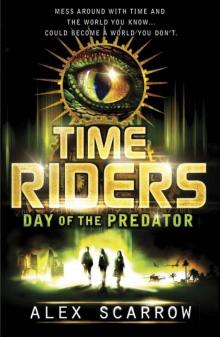 Day of the Predator
Day of the Predator Ellie Quin Book 3: Beneath the Neon Sky
Ellie Quin Book 3: Beneath the Neon Sky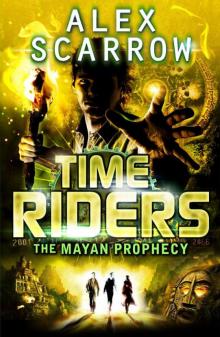 The Mayan Prophecy
The Mayan Prophecy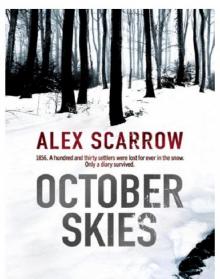 October Skies
October Skies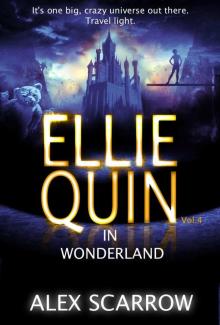 Ellie Quin Episode 4: Ellie Quin in WonderLand (The Ellie Quin Series)
Ellie Quin Episode 4: Ellie Quin in WonderLand (The Ellie Quin Series)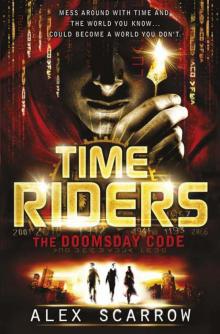 Time Riders
Time Riders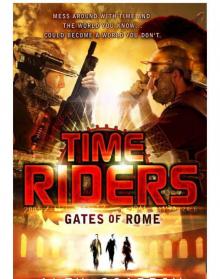 Gates of Rome
Gates of Rome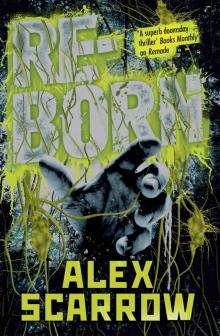 Reborn
Reborn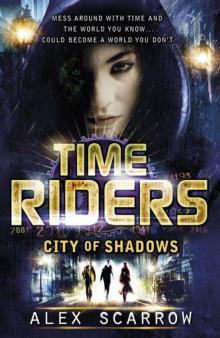 City of Shadows
City of Shadows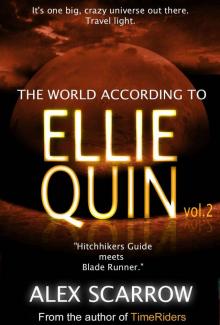 Ellie Quin Book 2: The World According to Ellie Quin (The Ellie Quin Series)
Ellie Quin Book 2: The World According to Ellie Quin (The Ellie Quin Series)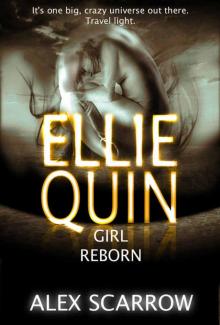 Ellie Quin Episode 5: A Girl Reborn
Ellie Quin Episode 5: A Girl Reborn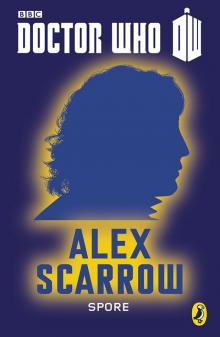 Spore
Spore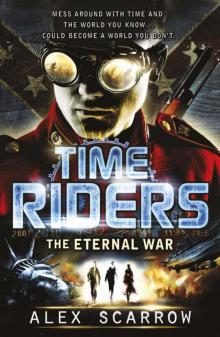 The Eternal War
The Eternal War Last Light
Last Light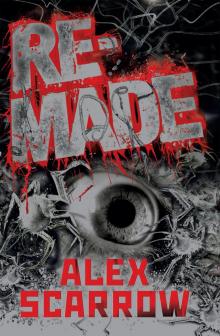 Remade
Remade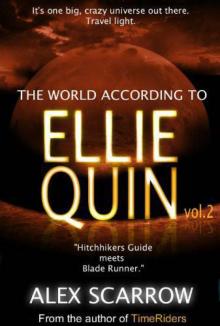 Ellie Quin Book 2: The World According to Ellie Quin
Ellie Quin Book 2: The World According to Ellie Quin Ellie Quin Book 3: Beneath the Neon Sky (The Ellie Quin Series)
Ellie Quin Book 3: Beneath the Neon Sky (The Ellie Quin Series)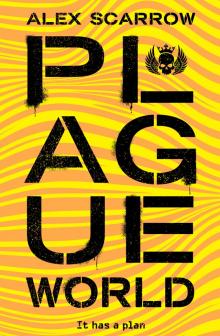 Plague World
Plague World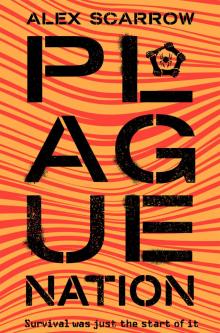 Plague Nation
Plague Nation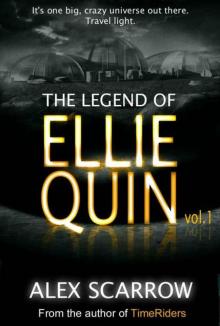 Ellie Quin Book 01: The Legend of Ellie Quin
Ellie Quin Book 01: The Legend of Ellie Quin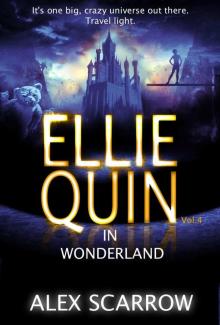 Ellie Quin - 04 - Ellie Quin in WonderLand
Ellie Quin - 04 - Ellie Quin in WonderLand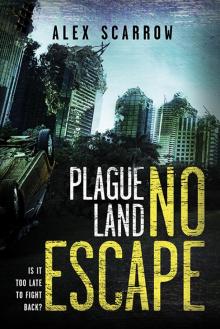 No Escape
No Escape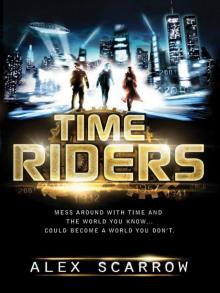 TimeRiders
TimeRiders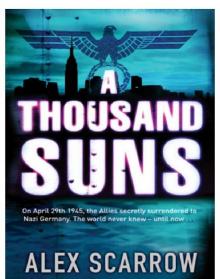 A Thousand Suns
A Thousand Suns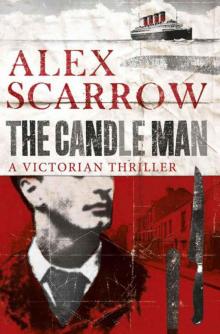 The Candle Man
The Candle Man The Pirate Kings
The Pirate Kings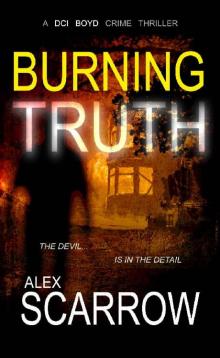 Burning Truth: An Edge-0f-The-Seat British Crime Thriller (DCI BOYD CRIME THRILLERS Book3) (DCI BOYD CRIME SERIES)
Burning Truth: An Edge-0f-The-Seat British Crime Thriller (DCI BOYD CRIME THRILLERS Book3) (DCI BOYD CRIME SERIES)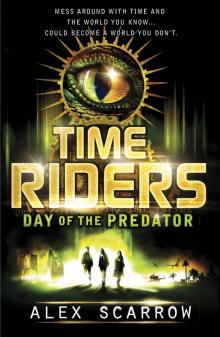 Day of the Predator tr-2
Day of the Predator tr-2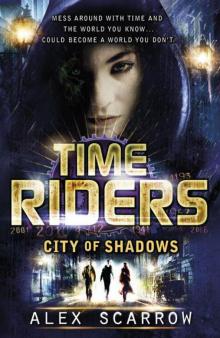 City of Shadows tr-6
City of Shadows tr-6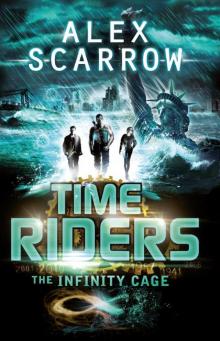 TimeRiders: The Infinity Cage (book 9)
TimeRiders: The Infinity Cage (book 9)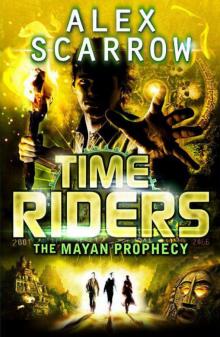 The mayan prophecy (Timeriders # 8)
The mayan prophecy (Timeriders # 8)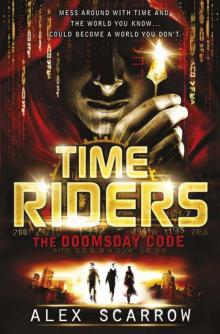 TimeRiders: The Doomsday Code (Book 3)
TimeRiders: The Doomsday Code (Book 3)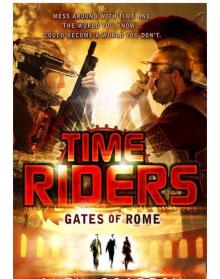 Gates of Rome tr-5
Gates of Rome tr-5 TimeRiders: The Pirate Kings (Book 7)
TimeRiders: The Pirate Kings (Book 7)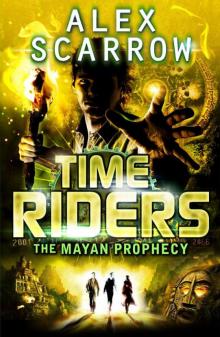 TimeRiders: The Mayan Prophecy (Book 8)
TimeRiders: The Mayan Prophecy (Book 8)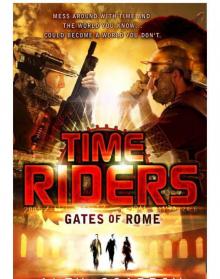 TimeRiders 05 - Gates of Rome
TimeRiders 05 - Gates of Rome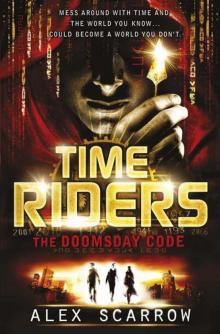 The Doomsday Code tr-3
The Doomsday Code tr-3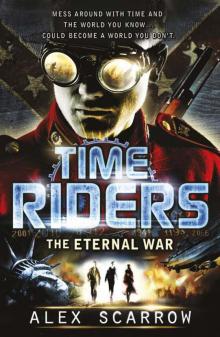 The Eternal War tr-4
The Eternal War tr-4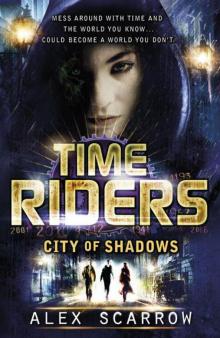 TimeRiders: City of Shadows (Book 6)
TimeRiders: City of Shadows (Book 6)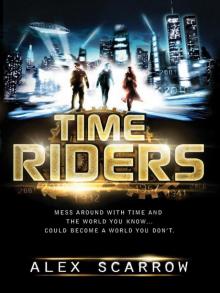 Time Riders tr-1
Time Riders tr-1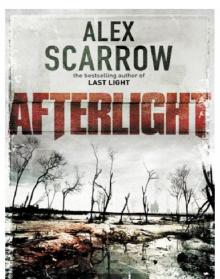 Afterlight
Afterlight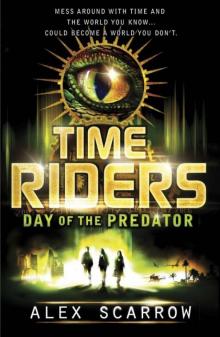 TimeRiders, Day of the Predator
TimeRiders, Day of the Predator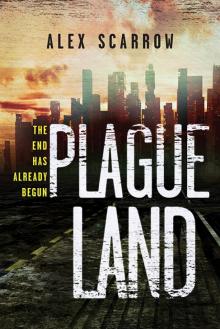 Plague Land Series, Book 1
Plague Land Series, Book 1